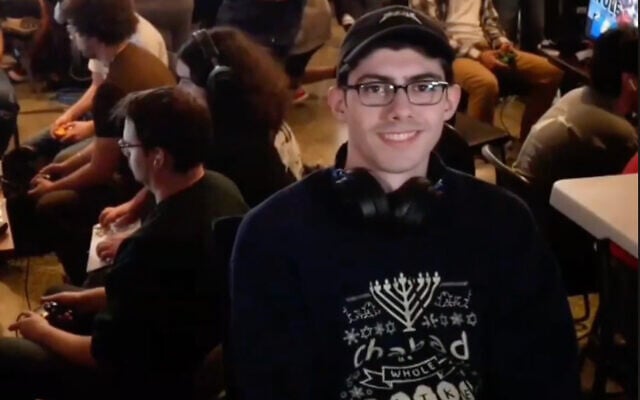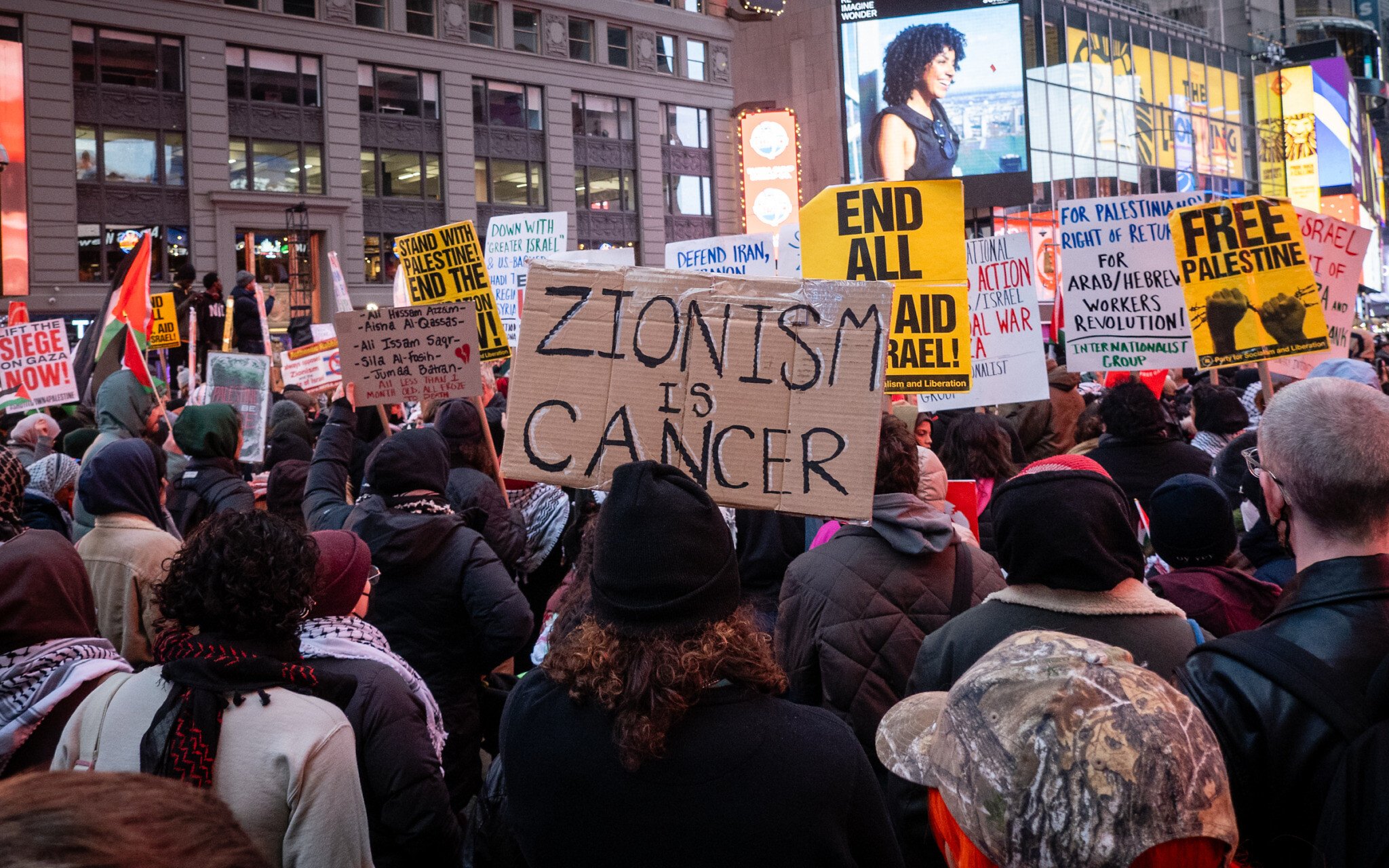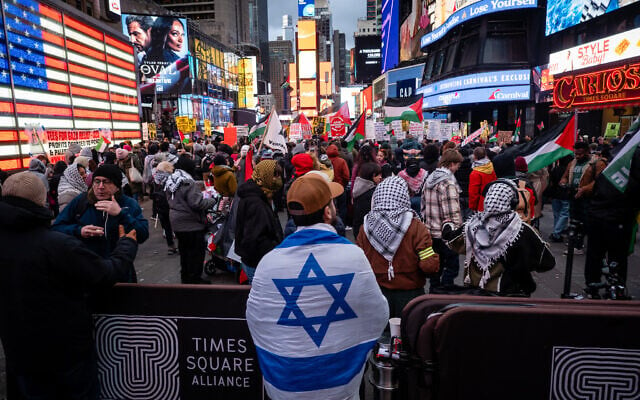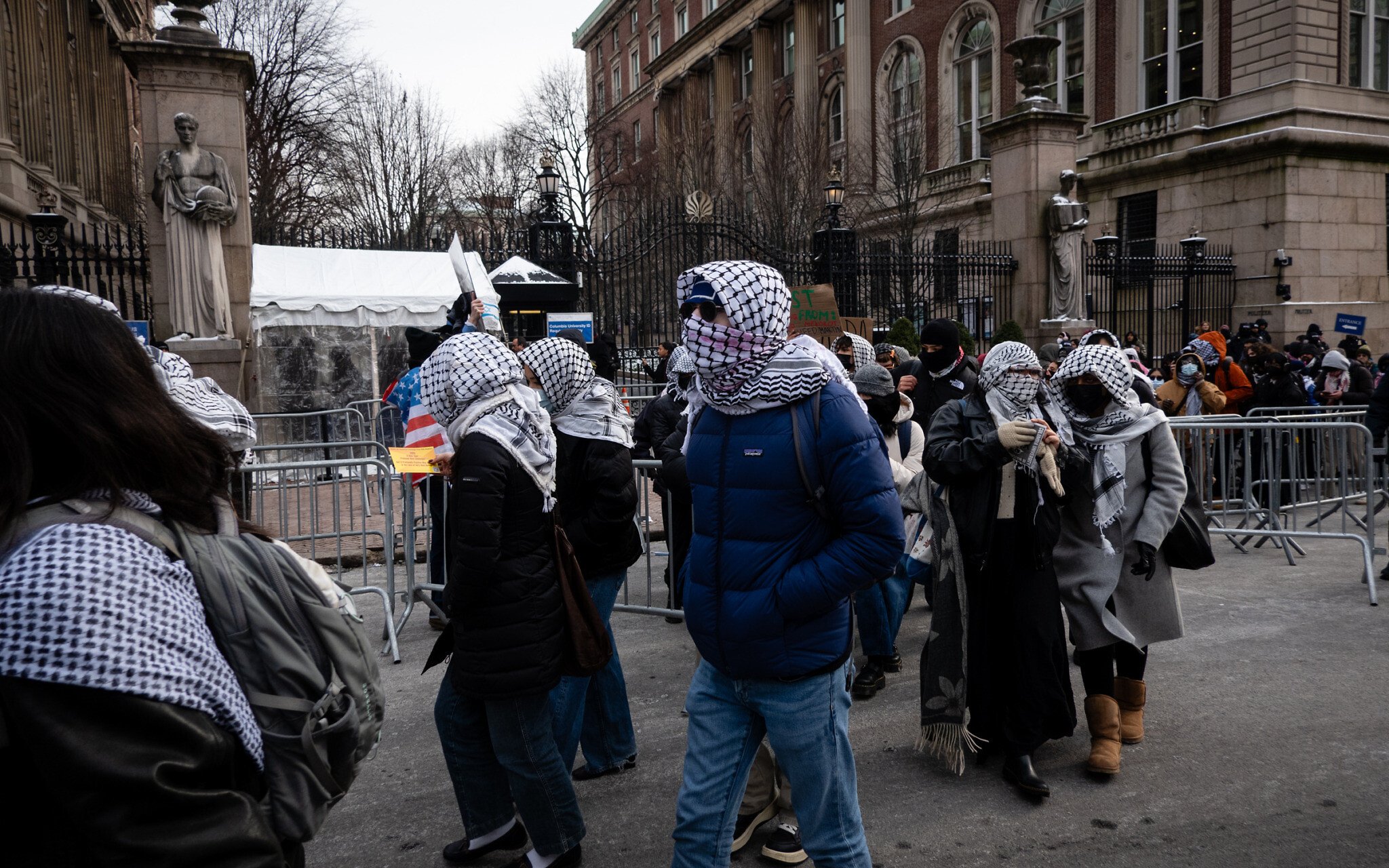


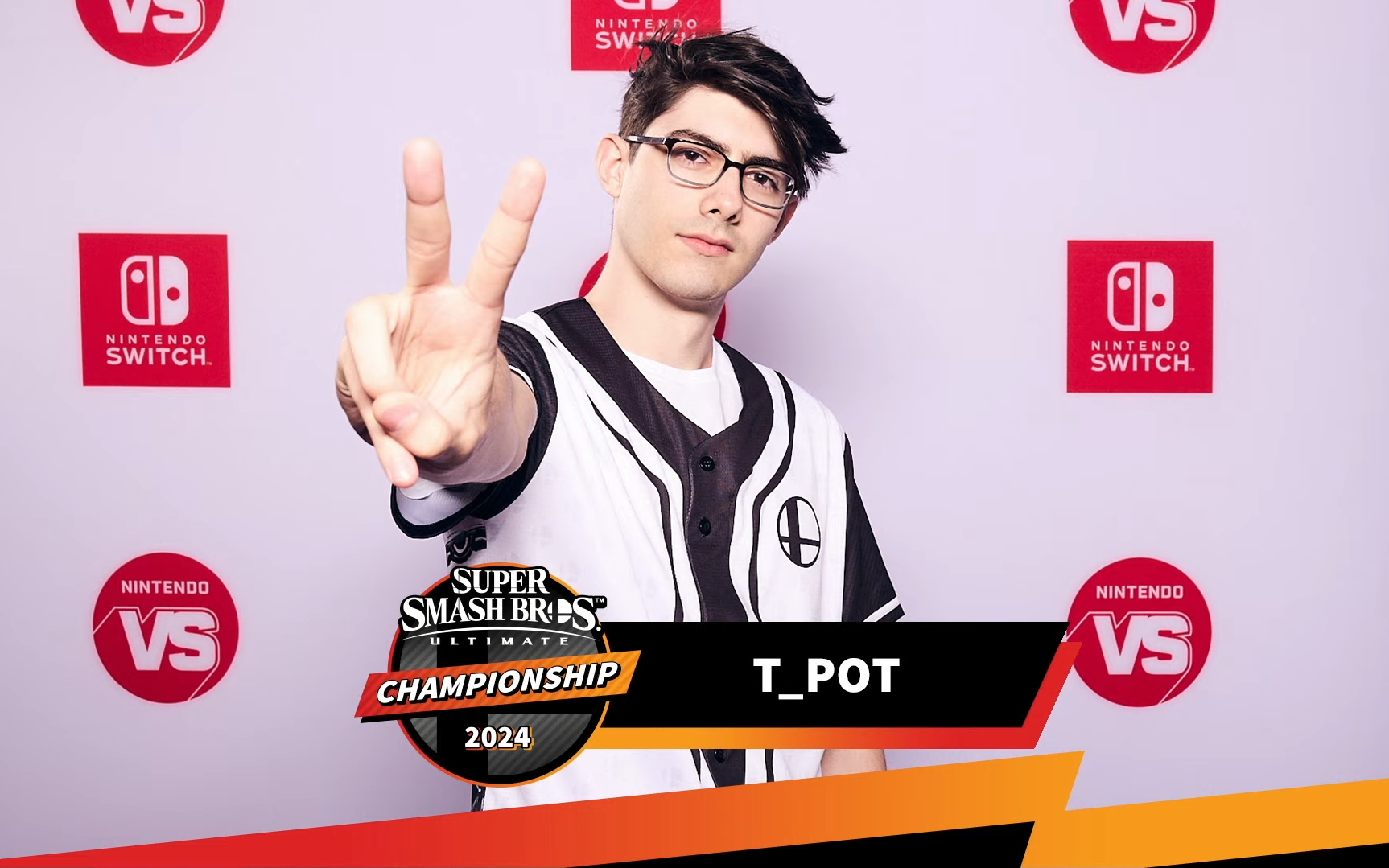
NEW YORK — In the fall of 2021, professional gamer Felix Hasson was hiking in the West Bank’s Wadi Qelt, a valley cut through the biblical landscape’s limestone hills between Jerusalem and Jericho.
The Jewish-American Hasson, then a teenager, was listening to Kanye West’s latest album, “Donda,” during the hike.
“In the west bank bumpin carti… i got to introduce these settlements to off the grid,” he posted on Twitter, referring to a song on the album featuring rapper Playboi Carti. (At the time, West, now known as Ye, had not yet posted any antisemitic tirades online.)
The tweet and others would surface more than two years later, after Hamas’s October 7, 2023, invasion of Israel, getting Hasson banned from several high-level online gaming competitions, according to a federal lawsuit filed in December in New York. Hasson is suing the competitions for excluding him in a case that his legal team hopes will set a legal precedent for other industries — online and off. The case also illustrated the evolving tactics in legal battles over antisemitism and anti-Zionism as both Israel’s advocates and its opponents take to the courts.
Hasson, a 21-year-old from New York, is a professional gamer specializing in Nintendo’s Super Smash Brothers Ultimate. He began competing in online tournaments in 2020, and by 2022, was ranked third in Israel while residing there during a gap year.
Playing under the pseudonym T_pot, Hasson was ranked 19th in the world for gamers playing as Terry, one of Smash’s characters.
The lawsuit argues that, although Hasson’s family is from the US, he considers Israel his “ultimate place of national origin” due to his Jewish ethnic and religious identity. That definition would protect Hasson’s Zionism under Title II of the US Federal Civil Rights Act of 1964. The law ensures equality in “public accommodations,” including sports arenas, without discrimination based on race, color, religion or national origin.
“What we’re doing is we’re really pushing for case law that when you tell a Jewish person that you’re not going to include them in your place of public accommodation because they support Israel, that alone constitutes discrimination,” said Hasson’s lawyer, Matthew Mainen.
Hasson grew up on Manhattan’s Upper West Side, where he attended events hosted by the area’s branch of the Chabad-Lubavitch Hasidic movement. He told The Times of Israel he had dreamed of becoming a competitive gamer since the sixth grade. He tried different games before settling on his strongest, Smash, around 2020.
After the tweet posted during his West Bank hike, Hasson shared several other pro-Israel posts. He called a meme shared by the IDF “based,” and joked about Palestinian Smash players using bombs in the game in a jab at Hamas rockets. On October 7, he said on X, formerly Twitter, “gaza got something big coming their way for sure,” and two months later, laughed at an X post showing a user celebrating the Hamas attack, then lamenting the IDF response.
Hasson said that another gamer had seen one of his posts about Israel, then dug up the others and contacted tournament organizers. In December 2023, the other gamer shared screenshots of Hasson’s posts and asked organizers for Luminosity, a gaming company, “why is this racist zionist weasel allowed at your events?”
“Israel is committing genocide and anyone who cheers it on should be treated with appropriate scorn,” he said.
In response, a Luminosity organizer said Hasson had been removed from an upcoming event in New York.
“Have been running events all day, just got to this and he has been removed,” a tournament organizer posted on X, following the statement with a thumbs-up emoji.
The announcement “gained a lot of traction,” Hasson said, prompting other competitions to follow suit. None of the organizers spoke to him before removing him, he said. Nearly all of the competitions Hasson was banned from were held in person.
“For the weeks after it happened, several weeks, I just felt a constant tightness in my chest, just really worried,” Hasson said. The cancellations took place during his winter break from college, and his mother worried about him returning to campus.
“What if news of this had gone around campus, and then what if my safety was in danger?” he said. “Like, ‘Oh, he’s a Zionist, get him.’ It was very, very unpleasant, frightening.”
The lawsuit said Luminosity has allowed players who posted anti-Israel vitriol online to continue competing, despite the ban against pro-Israel Hasson. Posts shared by players named in the lawsuit said, “Israel is evil,” mocked Israel’s counter-offensive in Gaza with Holocaust imagery, defended Hamas, shared conspiracy theories saying Israel caused most of its October 7 casualties, called Israelis “colonial oppressors,” and accused Israel of genocide.
The pattern repeated with several other gaming forums that banned Hasson, but not gamers who espoused anti-Israel vitriol. One organizer, from the Waypoint gaming cafe in New York, accused Hasson of “incitement to hate and violence” and told him that all tournaments in the New York region had unanimously decided to ban him from competitions, the lawsuit said. Mainen said the double standard constituted “disparate treatment,” an illegal form of discrimination.
Jewish legal advocates have sought to define Zionism as a facet of the Jewish faith, and not a political belief, to protect pro-Israel Jews, and combat anti-Zionism, under US civil rights protections. The argument has been widely used in cases involving Title VI, which bars discrimination in programs that receive federal financial assistance, to combat anti-Zionism on campuses that get government funding. It has not been effectively tested under Title II, though, said Mark Goldfelder, the director of the National Jewish Advocacy Center (NJAC), the legal group backing Hasson.
“What we did in this case is we used public accommodations law to try and make it clear that excluding Zionists from whatever space it might be, including in this instance, e-platforms, would constitute a violation of Title II,” Goldfelder said. “We want to take this Title II approach, public accommodations law, and bring it into the fuller civil rights conversation.”
He hopes that, if the lawsuit is successful, it will extend Title II protections for pro-Israel Jews to forums such as music venues, sports competitions and bookstores, where Jewish, “Zionist” authors have been excluded. Mainen pointed to a pro-Israel activist in Oakland, California, who was ejected from a pro-Hamas cafe for wearing a hat with the Star of David.
“The precedent that this case might set would really focus in on not just video games, but any place that’s offering services that’s attempting to deny them on the basis of someone’s support for Israel,” Mainen said. “It’s going to be the launch point for a lot of cases in the future.”
The lawsuit could also affect the gaming industry directly and other digital spaces. Jewish gamers have reported widespread antisemitism online, and NJAC has been approached for legal protection from people being abused in the metaverse.
“There’s really no statute right now to rely on, but as the lines between virtual reality and what I would call ‘our world’ become increasingly blurred, e-sports, just as much as anything else, is a place where people can experience discrimination,” said Ben Schlager, senior counsel at NJAC.
The lawsuit also aims to challenge Section 230 of the Communications Act of 1934, a federal law that protects online platforms from civil liability for third-party content by its users. Facebook cannot be sued, for example, if one user defames another on its platform. The law only protects the service providers if they are acting in “good faith,” however, meaning they are not liable for decisions on content moderation if those decisions are made in a fair and reasonable way.
“You’re banning them because you want to discriminate against them. We would argue that that’s bad faith. You can’t racially discriminate, you can’t nationally origin discriminate, you can’t religiously discriminate against someone,” Mainen said. “It’s been tough to successfully challenge, but we think that this discrimination component is going to be able to pierce the immunity of internet service providers.”
Mainen pointed out that US Supreme Court Judge Clarence Thomas has signaled he is open to challenging such discriminatory bans.
“We’re willing to take this all the way up to the Supreme Court. We see an invitation from Justice Thomas,” he said.
The lawsuit could mark a new front in the legal battle being waged over the Israeli-Palestinian conflict, and related discrimination, in the US. Jewish groups like NJAC, the Lawfare Project and the Brandeis Center have used the courts to advocate for Jews, efforts that have gained steam since October 7. On the other side, groups like Palestine Legal, the Council on American-Islamic Relations and the New York Branch of the American Civil Liberties Union have filed lawsuits for pro-Palestinian activists. Some universities, like Columbia, are being battered from both sides.
Samuel Estreicher, the director of the Center for Labor and Employment at New York University’s School of Law, is not involved in the Hasson case. He reviewed the lawsuit and said that Zionism was a political idea, not religious, but that Title II could apply to the case due to Hasson’s religious identity. Title II covers religion, but not politics, he said.
“If you’re treating Jews differently because they adopt certain views with respect to Israel, differently than other groups, then that’s a basis for religious discrimination under Title II, I would argue,” Estreicher said.
He added that the case, if successful, could set a precedent by putting gaming forums under public accommodations law. It could also open the door to further, similar Title II cases involving Jewish issues. The precedent could be influential, but would be non-binding, meaning other courts would not be required to follow the same decision in similar cases, he said. Title II was an important tool for advocates in the civil rights era, but is not widely used today, he added.
The lawsuit filed in New York’s federal Southern District Court requested that the court declare that the bans against Hasson were unlawful, that the gaming forums take him off the blacklist, and pay $1 million in damages to Hasson.
Luminosity and Waypoint did not respond to requests for comment and did not yet have legal representation listed in the case.
Hasson said he is still banned from competing in New York, but plays in Texas, where he attends Houston’s Rice University and keeps a mezuzah on his door. He knows the gaming community in Houston, which welcomes him as a player and defends him when out-of-towners try to eject him from the area’s competitions. Other gamers have also highlighted the case, pointing out the double standard organizers applied against Hasson.
Hasson said he hopes the lawsuit will result in an apology, his reinstatement in competitions, and send a wider message.
“I hope that by winning this case, it sends the message that you’re allowed to voice positive feelings about Israel and not fear that the entire community will shut you down and kick you out forever,” he said.

